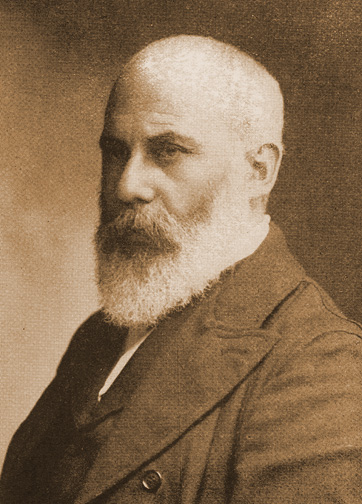“The Vatican in Politics”, also known as
“Ultramontanism”, is a pamphlet originally published by the Socialist Labor
Party (SLP), a Marxist group in the United States. This edition seems to be
some kind of freebooting reprint edition. The booklet contains articles from
the SLP's paper “The Daily People” written by Daniel De Leon, who was the
party's effective leader from circa 1890 to his death in 1914. De Leon has,
half-jokingly, been called a “pseudo ex Catholic” (or words to that effect) due
to his systematic attacks on Catholicism, which some people find peculiar or
obsessive (actually, De Leon was ethnically Jewish and never had any
connections to the Church).
“The Vatican in Politics” contains short articles in which De Leon exposes and attacks the political meddling of the Catholic hierarchy. He calls this political tendency within Catholicism “Ultramontanism”, a common 19th century slur against those who argued that the papacy should have temporal power. The articles deal with a variety of subjects. A SLP speaker in Montana had been physically attacked by local Catholics who couldn't stand his message. A Protestant missionary had been ejected from the small town of Rome (sic) in New York State on the orders of the local magistrate after complaints from local Catholic clergy. Catholic delegates to the AFL convention had said that if the union movement turns socialist, Catholics will form their own unions. Priests and laymen deemed too sympathetic to the socialist message had been excommunicated all across the United States, etc etc.
De Leon argues that all or most religious denominations serve the interest of the rich and powerful, and mentions several examples of Protestant and Jewish support for the Catholic Church against the threat of “socialism” (really the labor movement). He predicts that the ostensibly anti-Catholic religious groups will grow more and more friendly towards the Catholic Church to stop socialism. This has nothing to do with “religion”, something the SLP professed neutrality towards, and everything to do with politics. De Leon also argues that the Catholic hierarchy has double loyalties and isn't patriotic, its real loyalty being to the pope. Since the Church claims de facto jurisdiction over affairs De Leon and most Americans consider secular (such as marriage and the regulation of freedom of expression), the Church is anti-democratic, in addition to being anti-socialist and non-patriotic.
De Leon goes even further than this, however. He argues that the Church is a kind of “third force” in politics, neither capitalist nor socialist. It supports capitalism for purely tactical reasons, since the rule of the bourgeois is at least preferable to workers' power. In reality, the Church is feudal. Its real goal is to restore feudalism and the Dark Ages under the aegis of a pope acting as temporal world ruler in a universal monarchy. This makes the anti-democratic antics and double loyalties of the Catholic clergy downright sinister. It's not overtly clear from the pamphlet how De Leon imagined this “feudal” tendency to work. Did he really believe that the Church had the power to bring down capitalism “from the right” and hence restore something like the Middle Ages? Did he believe that the bourgeoisie would willingly go along with such a plan, the better to smash the labor movement? It's almost as if De Leon is groping towards an understanding of fascism, but since no fascist regime had taken power during De Leon's life time, his analysis was left dangling in the air and sounds more like a peculiar anti-Catholic conspiracy theory!
After De Leon's death in 1914, the new leaders of the SLP embalmed his theories as they were, rather than develop them. This can be seen in Eric Hass' foreword to the 1948 edition, which simply continues De Leon's attacks on “Ultramontanism”, implying that Roosevelt's New Deal was some kind of Catholic conspiracy. Hass also claims that if Stalinism takes over the world, the Catholic Church will probably enter a tactical compromise with them, just as they did with capitalism. As late as the 1990's, the SLP occasionally fulminated against papal encyclicals in “The People” (by then, a bi-weekly).
That being said, it would be interesting to read a De Leonist analysis of, say, fundamentalist Islam…

No comments:
Post a Comment